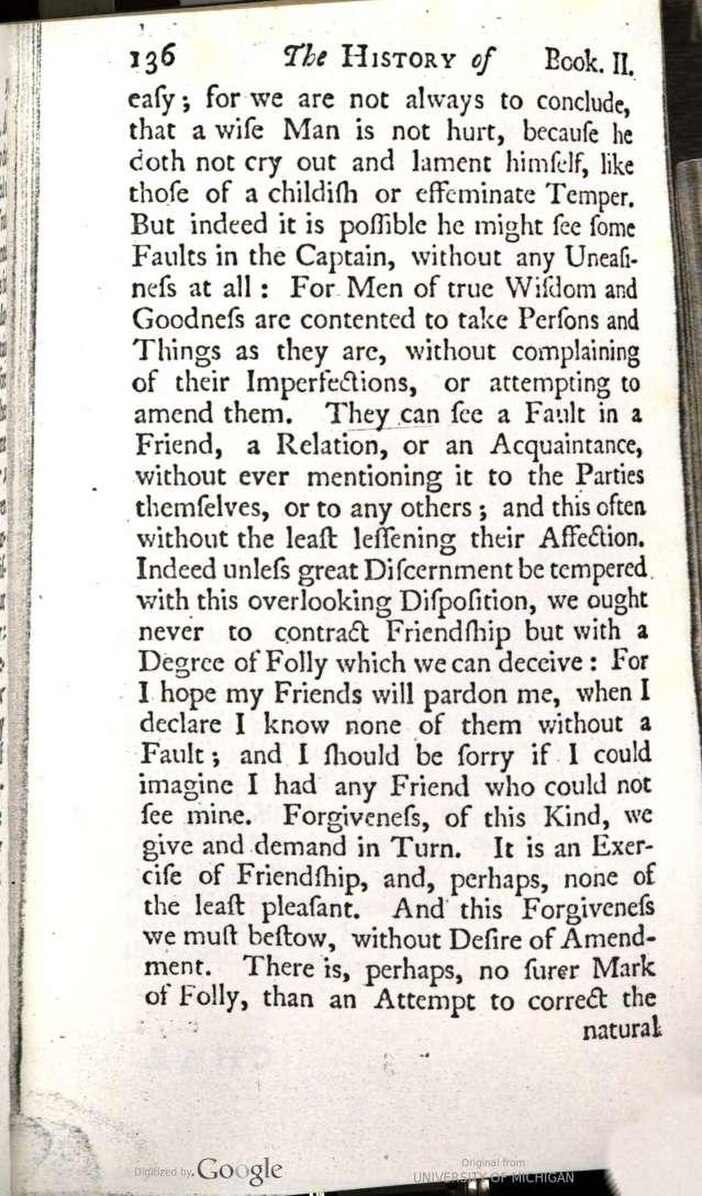eaſy; for we are not always to conclude, that a wiſe Man is not hurt, becauſe he doth not cry out and lament himſelf, like thoſe of a childiſh or effeminate Temper. But indeed it is poſſible he might ſee ſome Faults in the Captain, without any Uneaſineſs at all: For Men of true Wiſdom and Goodneſs are contented to take Perſons and Things as they are, without complaining of their Imperfections, or attempting to amend them. They can ſee a Fault in a Friend, a Relation, or an Acquaintance, without ever mentioning it to the Parties themſelves, or to any others; and this often without the leaſt leſſening their Affection. Indeed unleſs great Diſcernment be tempered with this overlooking Diſpoſition, we ought never to contract Friendſhip but with a Degree of Folly which we can deceive: For I hope my Friends will pardon me, when I declare I know none of them without a Fault; and I ſhould be ſorry if I could imagine I had any Friend who could not ſee mine. Forgiveneſs, of this Kind, we give and demand in Turn. It is an Exerciſe of Friendſhip, and, perhaps, none of the leaſt pleaſant. And this Forgiveneſs we muſt beſtow, without Deſire of Amendment. There is, perhaps, no ſurer Mark of Folly, than an Attempt to correct thenatural
